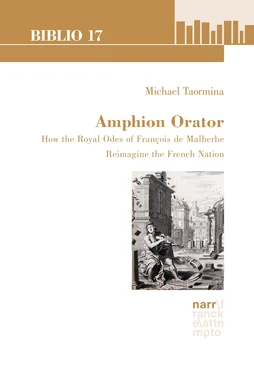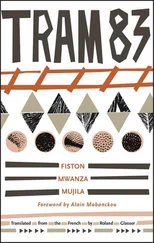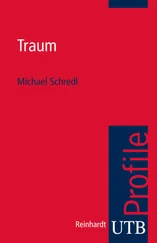Michael Taormina - Amphion Orator
Здесь есть возможность читать онлайн «Michael Taormina - Amphion Orator» — ознакомительный отрывок электронной книги совершенно бесплатно, а после прочтения отрывка купить полную версию. В некоторых случаях можно слушать аудио, скачать через торрент в формате fb2 и присутствует краткое содержание. Жанр: unrecognised, на английском языке. Описание произведения, (предисловие) а так же отзывы посетителей доступны на портале библиотеки ЛибКат.
- Название:Amphion Orator
- Автор:
- Жанр:
- Год:неизвестен
- ISBN:нет данных
- Рейтинг книги:4 / 5. Голосов: 1
-
Избранное:Добавить в избранное
- Отзывы:
-
Ваша оценка:
- 80
- 1
- 2
- 3
- 4
- 5
Amphion Orator: краткое содержание, описание и аннотация
Предлагаем к чтению аннотацию, описание, краткое содержание или предисловие (зависит от того, что написал сам автор книги «Amphion Orator»). Если вы не нашли необходимую информацию о книге — напишите в комментариях, мы постараемся отыскать её.
Amphion Orator — читать онлайн ознакомительный отрывок
Ниже представлен текст книги, разбитый по страницам. Система сохранения места последней прочитанной страницы, позволяет с удобством читать онлайн бесплатно книгу «Amphion Orator», без необходимости каждый раз заново искать на чём Вы остановились. Поставьте закладку, и сможете в любой момент перейти на страницу, на которой закончили чтение.
Интервал:
Закладка:
What has escaped the attention of critics is the allegoryfigures of thoughtallegory of the ship of state ship of state that joins the royal odes into a unified sequence. Like the word “patrienationla patrie” [fatherland, nationnation, country], one cannot find anywhere in the odes such a phrase as “le navire de l’État” or “le vaisseau de l’État” [the ship of stateship of state]. Even today it is not a common syntagm in French. In the late sixteenth and early seventeenth centuries, however, the analogyproofanalogy was commonplace (see QuintilianQuintilian 8.6.44). The figurative variants of this suppressed semantic nucleus appear in every ode. Such ubiquity raises the reader’s suspicion that the imagery means more than it says, a figure of thought known as emphasis figures of thoughtemphasis or significatio figures of thoughtsignificatio (QuintilianQuintilian 8.3.83; 9.2.64; Rhet. ad Heren CiceroRhetorica ad Herennium. 4.53.67 ff.). Provoked by the ship of stateship of state motif, the reader’s active understanding is able to weave a series of odes with loose thematic connections into a fully integrated grand tableau.
The classical allegoryfigures of thoughtallegory, more significantly, constitutes a substantive revision of the traditional myths and symbolsnationmyths and symbols of ofmythologyunderlying myth of the sequence the nationnation. The replacement of the myth of TroyTroy with the ArgoArgo myth redefines the basis for political association in France. It is no longer blood and soil but the collective good that binds the head and members of the body politicbody politic. Such a motif also reflects a de-emphasis of religion. If Henri IV is treated as quasi-divine, it is due to his superlative virtuevirtue, which participates in the virtuevirtue that orders the universe. It is no longer the Church that confers the aura of sacrality, but rather the monarch himself that inflects the sacrality of his mystical bodymystical body (of the king), the patria nationpatria, the nationnation. In the new imagined community, modeled on the Bourbons and guided by them, the unforgiveable crime is therefore no longer heresy but sedition. Continued rebellion against the crown is seen as threatening the safety of the ship, that is, the state, whose wreck will undermine the monarchy, the last unifying thread of the nationnation. It is noteworthy that the royal odes appropriate the all-important task of forging a nationnational identity which traditionally belongs to epicepic poetry poetry. Yet they accomplish it with images and argument rather than narrative, replacing the plot of epicepic poetry fiction with metaphormetaphor and exampleexample, but creating a no less powerful nationnational mythologymythology.
II.
There are several good reasons why these complex poems deserve to be the focus of a book-length study. First, both supporters and detractors of Malherbe’s reputation as the father of French poetry, reformer of the French language, and founder of the Grand Siècle , have looked to the odes time and again to bolster their diametrically opposed arguments. While it is true that Malherbe’s literary preeminence was beginning to wane by mid-century, particular odes would nevertheless remain for many seventeenth-century critics unquestionable models of eloquenceeloquence, nobilitynobility, and finesse.15 Second, as I mentioned, the odes form a unified sequence composed over the course of a quarter century. David Lee RubinRubin, David Lee asserted the thematic unity of the odes, but he never posited that the odes form a unified sequence based on a recurrent intertext, a common ideological goal, and shared rhetorical tools. This books does so. It shows that the sequence as a whole fashions an overarching nationnational mythmythologyunderlying myth of the sequence that imagines the Bourbons as quasi-divine heroes commanding the ship of stateship of state and steering it through the storms of political discord to a new Golden AgeGolden Age, where peace, justicevirtuejustice, and prosperity at home are matched by French hegemony abroad. The major odes in the sequence are well over a hundred lines, and they were, by all accounts, difficult to write and long in the making. Odes were often an easy way to make a splash in the literary world, but Malherbe did not write them simply to get noticed. Rather, the odes themselves, here and there, suggest that they aspire to outdo not just contemporary rivals but ancient models as well. Indeed, and this is the third point, their public occasions, their royal addressees, and their illustrious association with HoraceHorace and Pindar (two of the great models of eloquenceeloquence handed down from antiquity) make the odes a privileged vehicle for the demonstration of la grande éloquence [the grandstylegrand style], the most elevated and powerful genus dicendi [kind of speaking]. This style was so prized by both ancients and early moderns, it was endlessly reinvented by them. Malherbe’s own formulation of the grandstylegrand style would certainly have been credited to the poet’s genius, but showing off the potentialities of the French language would have been even more valuable to the fledgling Bourbon dynasty. The vernacular brought to the height of esthetic perfection in poetry offered an image of the political and moral excellence, and therefore the permanence, to which the French monarchy aspired. Malherbe’s odes strove to set the standard for royaleloquenceroyal eloquenceeloquence in a political and cultural climate where the exact formulation of the style best suited to royal majesty was passionately disputed. 16
What is more, the royal odes’ attempt to erect a linguistic norm perceived as the perfection of the French language accords with their ambition to foster nationnational coherence and unity. FumaroliFumaroli, Marc justly sees Malherbe’s role at the Bourbon courtcourt (royal) as “the magistrate of the royal language, dictating its grammatical, lexical, and rhetorical use, and crystallizing its laws in the example of his verse” (FumaroliFumaroli, Marc, Précis 95). What FumaroliFumaroli, Marc calls “the only true mission of the poet,” namely “to accord the language with royal grandstylegrandeur” (FumaroliFumaroli, Marc, Précis 95), simultaneously serves the ambition to unite the French nationnation. In La conscience nationale en France pendant les guerres de religion , Myriam YardeniYardeni, Myriam stresses that the French language was a crucial vector of national consciousnessnationnational consciousness: “the language was seen as a basic element of one’s love of country [ patrie nationla patrie]. Any effort that aimed at its diffusion, its implantation, or its embellishment becomes an act of patriotismpatriotism. This sentiment is not limited to the narrow milieu of the educated and extends far beyond the ivory-tower patriotismpatriotism of scholars and poets. All understand that the language is their national heritage [ patrimoine ]” (YardeniYardeni, Myriam 43). Malherbe’s proverbial obsession with purity of diction, grammatical correctness, and polished sonorousness, criteria borrowed from CiceroCiceronian AtticismCiceroAtticism (CiceroCicero, De Or CiceroDe Oratore . 3.38. 53-54; Brutus CiceroBrutus 252; Orator CiceroOrator 24-25), parlays the perceived universality of the Tullianus stylus [CiceroCiceronian style] into a national language that seeks to transcend dialects of region, caste, and profession.17
By far the most compelling reason to reexamine the royal odes, however, is to retrieve their impassioned patriotismpatriotism. To anyone familiar with the prosodic and philological niggling that still surrounds Malherbe’s poetry, the focus on patriotic sentimentpatriotismpatriotic feeling, fervor, sentiment should be a welcome breath of fresh air. Close inspection of the odes invariably reveals a speaker who raises up his voice at a crucial political juncture. The future of France always seems to hang in the balance, and the general welfarecommonwealthgeneral welfare of the nationnation rides on his utterance. Such public and political speech grew out of the political turmoil that prevailed during the Wars of ReligionWars of Religion. “Deliberativeeloquencedeliberative, that is, politicalpolitical eloquenceeloquence,” writes FumaroliFumaroli, Marc, “crept through the whole kingdom, no longer in its discreet form, appropriate to the spirit of courtcourt (royal), or the ‘Council of the Prince,’ but as public harangues in the ‘republican’ style which could claim direct descent from CiceroCicero and Demosthenes” (FumaroliFumaroli, Marc, L’Âge 492). “In the midst of a civil war recalling the Rome of CiceroCicero, CaesarCaesar, Octavian, and Antony, the clergy and the magistracy, by turns, shifted toward a deliberativeeloquencedeliberative eloquenceeloquence foreign to the character and the tradition of the French monarchy” (FumaroliFumaroli, Marc, L’Âge 493). A vigorous pamphlet literature amplified these orations, publicizing the competing ideological claims of ProtestantProtestants and Catholics and politicizing the rhetorical climate. When Henri IV acceded to the throne and politicalpolitical eloquence was no longer welcome, epideicticeloquenceepideictic oratory took up the slack (FumaroliFumaroli, Marc, L’Âge 238). As orators and poets competed “to remake and to perfect national unitynationnational unity around the king, and to secure a dearly won peace” (Chauveau 63), “the art of royal praise became the crucible of a literary language transcending provincial particularisms and caste idioms. Remaining the privileged route for poets to obtain honors, titles, pensions or commissions, this prime vector of literary change between 1600 and 1630 mingled eloquenceeloquence and poetry” (FumaroliFumaroli, Marc, Précis 98). Catapulted to the forefront of emerging literary trends, encomiasticencomiumencomiastic poetry poetry became a natural outlet for the expression of political aspirations.
Читать дальшеИнтервал:
Закладка:
Похожие книги на «Amphion Orator»
Представляем Вашему вниманию похожие книги на «Amphion Orator» списком для выбора. Мы отобрали схожую по названию и смыслу литературу в надежде предоставить читателям больше вариантов отыскать новые, интересные, ещё непрочитанные произведения.
Обсуждение, отзывы о книге «Amphion Orator» и просто собственные мнения читателей. Оставьте ваши комментарии, напишите, что Вы думаете о произведении, его смысле или главных героях. Укажите что конкретно понравилось, а что нет, и почему Вы так считаете.












